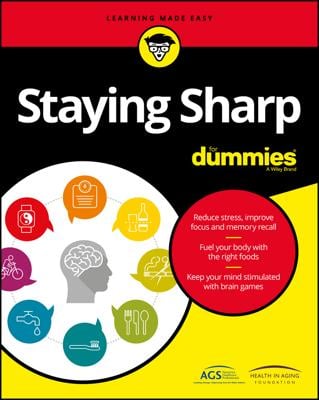You may be one of the millions of people juggling several tasks at once. This kind of complicated balancing act has been referred to as multitasking, because you're doing more than one thing at time. Multitasking has become a normal way of functioning in the world. If you find youself doing any of these things, you're a multitasker.
- Talking on the phone while e-mailing
- Reading while watching television
- Writing a memo during a meeting about something completely different
- Making or taking a cell phone call while driving
If you're proud of being able to multitask, you should be concerned about what it's doing to your memory. Recent research has made clear that divided attention dampens memory. Although we may be able to glide through the day, touching bases and dealing with busy work, the depth to which we remember any of it reduces as we engage in activities that require more concentration.
Imagine yourself sitting at a meeting at work and feeling pressed for time with too many people wanting your attention. Twice, you get up to answer your pager. After you sit back down in the meeting, you decide that you'd better get that memo to the staff written.
From one ear, you hear the director of the company talk about getting more out of the workers. From the other ear, you listen to two of your fellow supervisors gossiping about how the director was dating his assistant, Debbie.
You decide that you'd better get this memo written before the end of the meeting because you have a teleconferencing meeting and have to return some e-mails while you return some phone calls.
You write the memo on your laptop. After the meeting, you hand the floppy disk to your secretary and ask her to have it printed out and delivered to everyone's mailbox.
After you go to the two teleconferences, you get an urgent call from the director. He summons you to his office. You arrive to see him glaring at you. He hands you a copy of your memo. It reads, "Debbie and the Director want you."
Having that memo fly back in your face in this way would be enough to make you reconsider whether you'll continue multitasking. However, you shouldn't wait to change your ways until you experience such a dramatic humiliation. Most likely, the memory mistakes you make while multitasking are far more subtle. Perhaps, they're so subtle that you don't even notice because you're so busy multitasking.
Multitasking decreases your memory ability. Each task that you're engaged in drains part of your mental energy. This drainage is why multitasking breeds absentmindedness. Your complete mind isn't present when you shift from one task to another and back again. You could say that your mind is absent.
The plain truth is that you don't have unlimited ability to pay attention to several things at once. With each new task you toss in to the juggling act, you dilute your investment in each task. Consequently, even if you do complete one of the juggled tasks, you may not remember how you did it.
You may ask, "Is the solution to avoid multitasking?" The simple answer to this question is yes. But, at times, you may think that you don't have a choice. However, you may have a bigger choice than you think. True, certain times, you may have to do some juggling — but these times are probably fewer than you think. Your challenge is to know the difference between the times you absolutely do have to multitask and the times that you don't.
Even if you're compelled to multitask, you still may be able to retain some memory of what you did on one task before you shift to another. You can make this shift successfully if you shift your pace. Yet, just slowing down isn't enough because you still need to break the pace up with islands of sanity. You need to come up for air periodically.
Consider the break in pace to be an opportunity to remember what you just completed. It's a time for you to integrate that task with all the other tasks you completed in the same project. As you fit in the latest tasks with the other ones, you can see how they all relate to the bigger picture.

